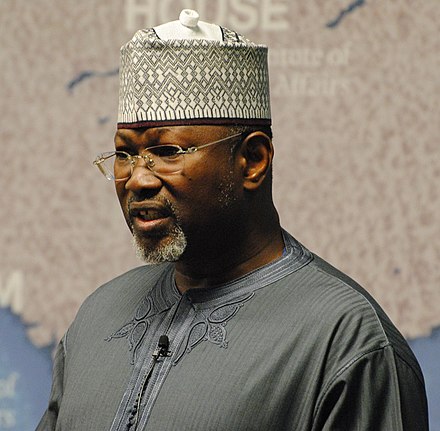Some officials compromised 2023 elections- Ex-INEC Chairman
Prof. Attahiru Jega, a former Chairman of the Independent National Electoral Commission (INEC), says some officials within the electoral commission compromised the outcome of the last general election.
Mr Jega, a professor of political science at Bayero University, Kano, explained that the INEC authorities who compromised the outcome of the election were able to carry out the illegal deal because they were nominated for the positions based on political bargains.
The former INEC chairperson disclosed this when he spoke as a guest lecturer at the two-day retreat organised for senators in Akwa Ibom.
Mr Jega spoke on the topic “Electoral Reform and Democratic Consolidation in Nigeria: Review of 2022 Electoral Act (areas for further legislative actions).”
“We have seen, in 2023 elections, the damaging effect of how people in the corridors of power get their client/partisan nominees appointed, without being thoroughly screened, and then they are influenced to compromise the integrity of elections,” Jega said.
In his recommendation on electoral reforms, the former INEC boss said for a transparent election to be conducted, the president must not be involved in the appointment process of chairman of the electoral commission and resident electoral commissioners.
Mr Jega recommended that a joint committee of the National Assembly should be given the responsibility to shortlist, screen and confirm nominees for the position of INEC chair and resident electoral commissioners.
He also said that the Senate confirmation of the electoral appointees should be strict and not the ‘usual take a bow and go.’
“On second thought, and for obvious reasons, I will recommend a joint committee of the National Assembly be given this responsibility, with criteria, for transparency, non-partisanship and stakeholder engagement for the process. The applicants/nominees for these appointments should be subjected to public scrutiny with regard to knowledge, skills, good character and non-partisanship.
“Guidelines should be provided for submitting petitions against any nominee during this process. In any case, the Senate screening process should be more serious and rigorous. Also, there should no longer be the patronizing “Take a bow and go”.
Mr Jega also recommended that the federal government should make INEC completely independent in such a way that it will be able to hire and fire its officials independently without interference from the government.
“Professionalise lower level administrative appointments, including headship of state offices of INEC. In this regard, the appointment of Resident Electoral Commissioners should be divested from the president and given to the Commission at INEC, with powers to hire and fire.
“Once the appointment of Chairman and National Commissioners is sanitised, infused with public scrutiny for integrity and non-partisanship, then the Commission should be entrusted to hire and fire competent and skilled staff for administrative roles at both the headquarters and state offices of INEC.
“Thus, there will be clear lines of authority and directives, which would prevent the kind of unwholesome situations we have seen, in which RECs pander more to their partisan political bosses who nominated them into office, and ignore the lawful directives of the Commission.”
Mr Jega also said registration and monitoring of activities of political parties should be taken away from INEC and entrusted to another federal agency.
“Electoral boundary and constituency delimitation should be reassigned and entrusted to the National Boundary Commission, or such other agency as may be created. Registration and monitoring of the activities of political parties should also be taken away from INEC and entrusted to another federal body/agency.”
The former INEC chair stated that there is a need to review parties and candidates that contest for presidency and governorship elections.
He said, “There is a need to review the manner by which every “Dick and Harry” party/candidate vies for the presidency, and even governorship, making the cost of elections relatively high.
“A legal threshold needs to be provided, which political parties and candidates have to cross, beyond mere registration as a political party, before they can vie for the presidency or even governorship elections. There are models of this in many electoral jurisdictions, that Nigeria can learn from, and adapt to our context.”




